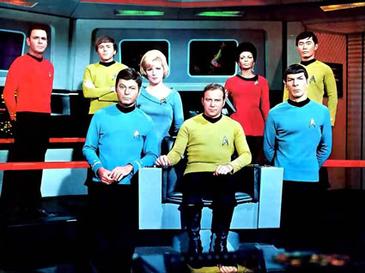Tuesday, 12 January 2016
Monday, 11 January 2016
Rest In Peace
I woke to the very sad
news this morning about David Bowie. He has been a part of my life since Space Oddity in 1969, but we lost touch for a few years.
Like a lot of my friends and many other teenagers in Britain, David Bowie came back into my world in July 1972 when he appeared on Top Of The Pops as Ziggy Stardust (with his Spiders From Mars). Starman really did seem from another world…It appears such a relatively simple song, but when Bowie looked into the camera about halfway through and pointed (“…so I picked on you”) his career really started to take off. Hit followed hit for the rest of the decade…Life On Mars; The Jean Genie; Rebel Rebel; Young Americans; Golden Years; Sound and Vision; Heroes; Boys Keep Swinging and finally in 1980 the incredible Ashes to Ashes.
Of course his albums were
stupendous…Diamond Dogs and Low being (just about!) my favourites, but from
Hunky Dory to Scary Monsters (and Super Creeps) his range of music and styles
were amazing. Other stand out songs for me include Panic in Detroit;
Sweet Thing, Candidate, Sweet Thing (Reprise); Right; Fascination; Can You Hear
Me; Station to Station; Be My Wife; Subterraneans; Blackout and The Secret Life
of Arabia.
1983’s Let’s Dance LP
featured some good stuff, but was nowhere near as high a standard as most of
his 70s work. Tonight the following year was the last album I bought of
his for some time. Apart from the catchy Blue Jean, the rest of the songs
were pretty dire. I did purchase the first Tin Machine LP and Prisoner of
Love was a great song and the rest were certainly an improvement on his recent
work. Around this time I mostly stopped buying records (never really did
like CDs) so his work since then is known to me only in certain songs I have
heard. However, the fanfare that greeted 2013's The Next Day album made
me listen to it on YouTube. Where Are We Now is a brilliant song and
there are some other gems on there as well. However, David Bowie’s 1970s
singles and LPs will always represent for me some of music’s finest moments.
Thank you so much David for
everything.
Monday, 4 January 2016
To Boldly Go...

Star Trek first aired on BBC One in July 1969. I was twelve years old and loved it from its first moments. Where No Man Has Gone Before was the episode and it featured a man whose eyes glowed silver after the Enterprise encountered a strange "barrier" at the edge of the galaxy. He became some sort of superman who was a threat to the rest of the crew. Kirk eventually overcomes him and saves the day which would become a regular theme throughout the series.
Star Trek broke many television boundaries throughout its three series, including showing people of different cultures working and living together happily. Many episodes were types of morality plays where Kirk and his crew were tested over ethical matters. The relationship between the emotional Captain Kirk and the logical Vulcan Lieutenant Spock was at the heart of the programme's appeal.
My favourite episode of all was The City on the Edge of Forever which featured Joan Collins. Having gone mad due to an accidental overdose of medicine, Dr McCoy goes back in time to earth in the 1930s in the process altering history. Kirk and Spock go after him to New York in an attempt to retrieve him and time itself. After stealing some clothes to blend in, they meet a woman named Edith Keeler who runs the 21st Street Mission. They offer to work for her. Spock begins to attempt to find out how McCoy has altered history.
Kirk begins to fall in love with Edith, who is very interested in the future. McCoy stumbles into the mission where Edith takes him in, unbeknownst to Kirk. Spock finishes his work and reviewing the images of the original and altered timelines, discovers that Edith was supposed to have died in a traffic accident, which was somehow prevented by McCoy. Instead, Edith lived on to start a pacifist movement which influenced the United States sufficiently to delay its entrance into World War II, thus allowing Nazi Germany time to develop an atomic bomb and win the war. Kirk knows that Edith must die in order for time to return to normal.

Meanwhile, Edith nurses McCoy back to health, and he tells her his story. Though Edith is sceptical, she tells McCoy that he would like her eccentric new boyfriend. Later, as Kirk and Edith are walking to the movies, Edith mentions Dr. McCoy. Alarmed, Kirk tells Edith to stay there before running to find Spock. The three friends meet in front of the mission. As a curious Edith crosses the street to join them, she steps in front of a fast-moving truck. Instinctively, Kirk reacts, but freezes when Spock stops him. McCoy is restrained by Kirk as Edith is knocked down and killed.
McCoy tells Kirk that he could have saved her. “Do you know what you just did?" he says. Spock responds quietly, "He knows, Doctor. He knows." With Edith's death, history reverts to its original form.
Star Trek continued for three series before resurfacing at the end of the 1970s with the first of six motion picture films. The final movie (The Undiscovered Country) was the best of the series with a fine mixture of drama, adventure and comedy. Forget Star Wars and even Doctor Who, Star Trek is the best science fiction story of all.
Subscribe to:
Posts (Atom)
